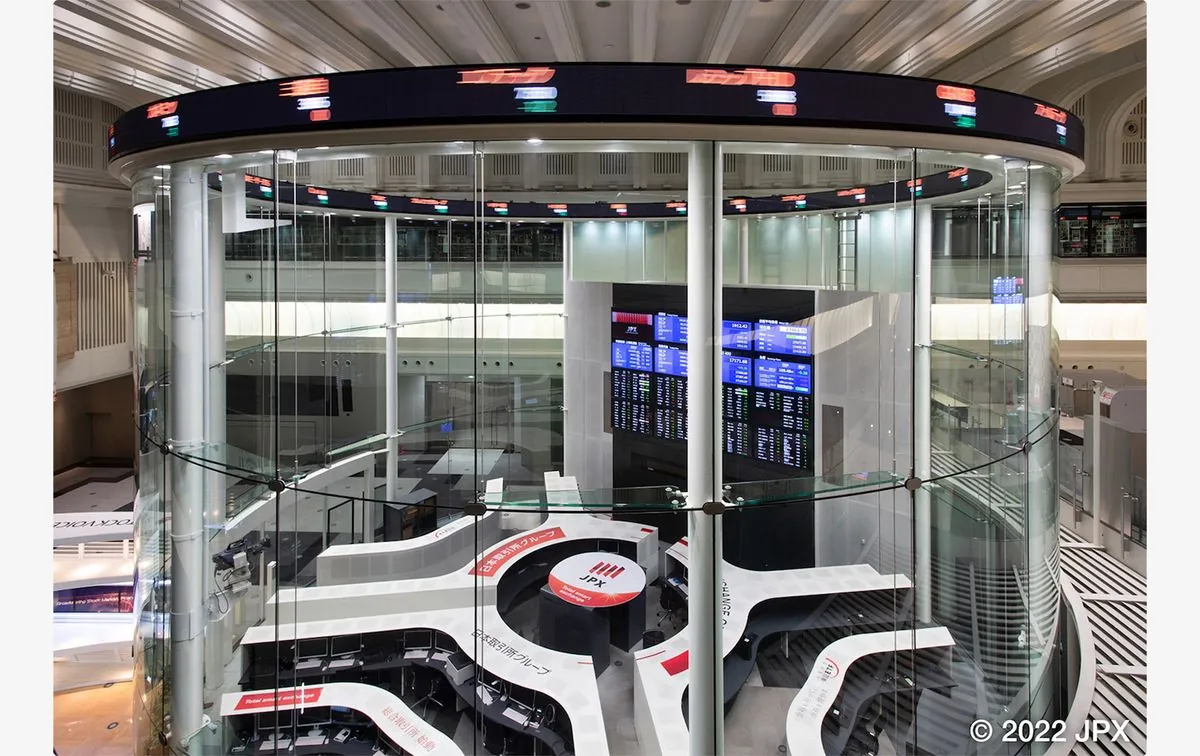In a dramatic turn of events, Japan's Nikkei 225 index, the country's primary stock market gauge, experienced a significant rebound, surging nearly 11% early Tuesday. This recovery comes on the heels of a tumultuous Monday that saw markets in Europe and the United States grappling with steep losses.
The global financial landscape has been marked by volatility, with the S&P 500, an index tracking 500 large U.S. companies, dropping 3% to close at 5,186.33 on Monday. Similarly, the Dow Jones Industrial Average, which follows 30 major U.S. corporations, fell by 1,033 points to 38,703.27, while the tech-heavy Nasdaq composite slid 3.4% to 16,200.08.
These market movements reflect growing concerns about the U.S. economy's health and the Federal Reserve's monetary policies. Recent data, including a weaker-than-expected U.S. employment report, has fueled fears that the central bank's prolonged high interest rates might be overly restrictive.
The Institute for Supply Management reported slightly stronger growth in U.S. services businesses, particularly in arts, entertainment, recreation, accommodations, and food services sectors. However, this positive note did little to alleviate overall market anxiety.
"The Fed could ride in on a white horse to save the day with a big rate cut, but the case for an inter-meeting cut seems flimsy. Those are usually reserved for emergencies, like COVID, and an unemployment rate of 4.3% doesn't really seem like an emergency."
The technology sector, once a market darling, has faced significant challenges. Companies like Apple, Nvidia, and other members of the "Magnificent Seven" have seen their shares falter. Apple's stock fell 4.8% following news that Warren Buffett's Berkshire Hathaway had reduced its stake in the company. Nvidia, despite its year-to-date gains of nearly 103%, experienced a 6.4% drop amid reports of delays in its new AI chip.
Global factors continue to influence market dynamics. The Bank of Japan's recent decision to raise interest rates from near-zero levels has impacted currency markets, potentially affecting the value of the Japanese yen. Additionally, geopolitical tensions, such as the ongoing Israel-Hamas conflict, contribute to uncertainties in oil prices and overall market sentiment.
As of August 5, 2024, the U.S. benchmark crude oil was trading at $74.12 per barrel, while Brent crude, the international standard, stood at $77.30 per barrel. Currency markets saw the euro at $1.0956 and the dollar at 145.33 yen.
With the next scheduled Federal Reserve decision set for September 18, 2024, and upcoming U.S. elections on the horizon, market participants remain vigilant, anticipating potential policy shifts and their implications for the global economy.
